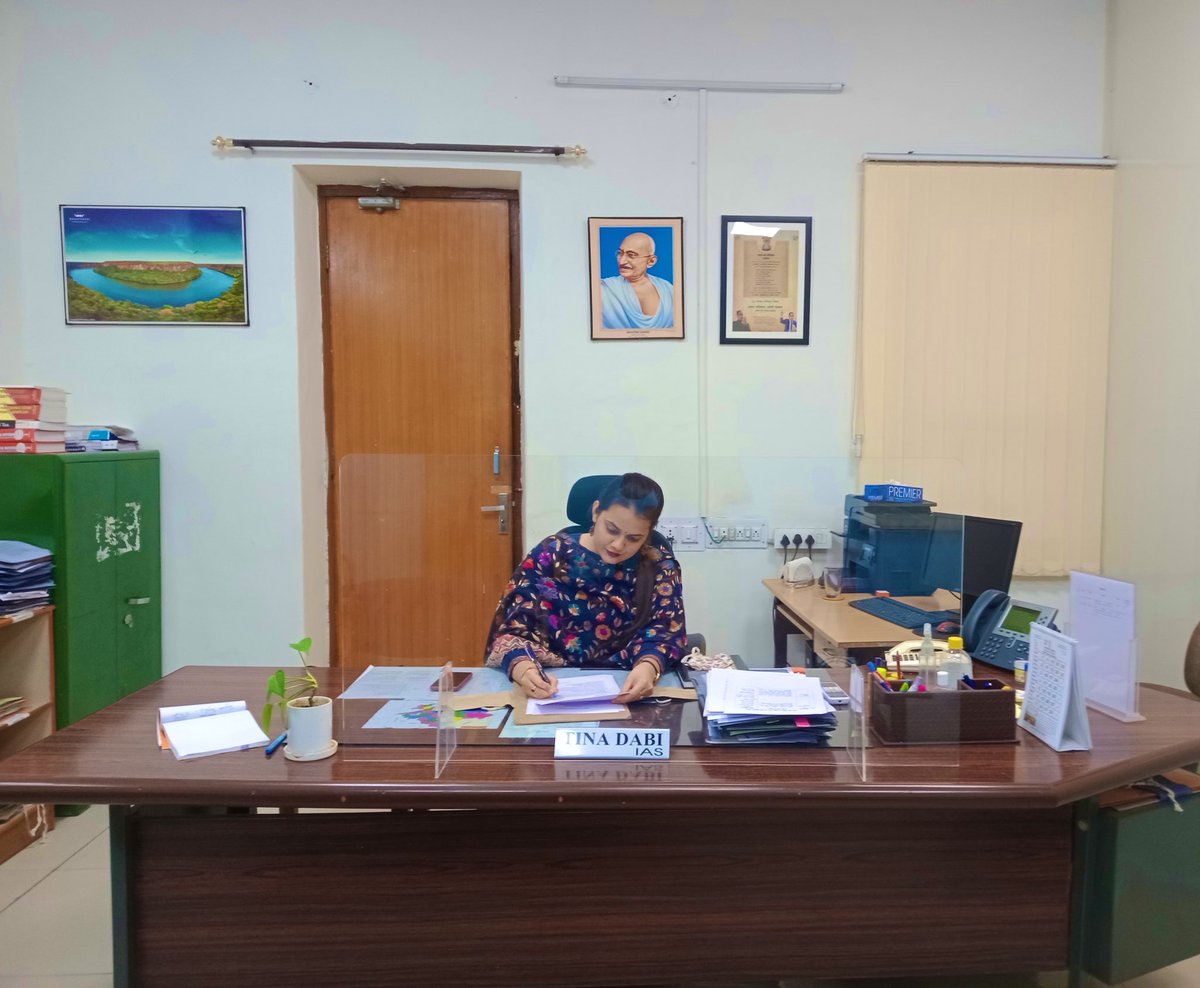UPSC CSE AIR 1 Tina Dabi Shares Study Plan for Prelims, Essay Paper
IAS officer Tina Dabi, who secured AIR 1 in UPSC Civil Service Examination 2015, shares her study plan and strategy to tackle prelims and essay paper.

In the 2015 Union Public Service Commission’s (UPSC) Civil Service Examination, Tina Dabi bagged the All India Rank 1 and also holds the distinction of being one of the youngest candidates to qualify for this examination. What’s even more notable was that the 22-year-old accomplished this on her very first attempt.
In this article, Tina shares the strategy she followed while studying for the prelims and leaves us with tips to attempt the essay paper.
“The broad canvas that being a part of the civil services offers one is what pulled me towards appearing for the examination,” says Tina. She mentions how her parents often spoke about the job profile that a civil servant was exposed to, she says, “It is so many things rolled into one, not just administrational but planning, using one’s creativity, managing people, event management, implementation of policies, and bringing in fresh perspectives.” This was what she said motivated her to make a plan and prepare for it, giving it her all.
Tina narrates the following things to keep in mind while preparing for the prelims:

1. Be consistent
“The road to achieving success in this examination is long and hard and the only way to come out successful is to remain consistent,” says Tina. Many aspirants spend a minimum of one year in preparing for the examination and along the way could lose motivation and patience to continue with the same vigour. “Ensure that you never reach a stage where you are tired of studying. One needs to constantly stay motivated and keep a positive outlook going all through,” she says.
2. Target setting
“Having a well thought out plan and following it will help aspirants,” she says. Tina would ensure that she spent close to seven hours every day studying and says it is important for aspirants to set their target before they begin. “The syllabus for this examination is huge and one cannot approach it if there is no clear goal defined. This examination requires very meticulous planning,” she says. These targets could be set either for a month or even a week, as it will give the aspirants a fair idea of how much syllabus is being covered.
3. Be prudent with your time
“You need to acknowledge that one cannot study for hours together without a break or for that matter even the same subject,” says Tina. She recommends aspirants also factor in break times and bring in a good mix of subjects to ensure that one stays focussed. Tina followed a three-hour and two-hour time slot schedule, in which she picked a subject and stayed with it for that time period. “Those subjects that I felt required more time, I spent three hours on them, otherwise I spent two hours per subject. This helped me in concentrating as well,” she says. Remember, that the idea is not to sit in front of the books, but to ensure that “the matter reaches our brains”.
4. Make practise a habit
“For the prelims aspirants must ensure that they are thorough with the syllabus, have sufficient time to revise and spend ample time practising previous year question papers. Doing all these three things will hold aspirants in good stead,” says Tina. Each week, one day should be dedicated to revising everything that was covered in that week, and doing that consistently will help while aspirants are attempting the paper. Adding to this, Tina says, “After completing a particular portion of the syllabus, ensure that you come back and revise it within 10 days. If not, chances of forgetting it are high.” The more you revise, the better you can recall.
The essay paper is one that can fetch aspirants a good score but is often neglected. Sharing her strategy in attempting this, Tina says, “Once the prelims were done, I made it a practise to attempt at least one essay every week until the main paper. Do not neglect this part of the examination since it is a high scoring one.”
Sharing pointers for the essay paper, she says the following –

1. A chance to be creative
“While being creative comes naturally to some, others might have to work harder at it,” says Tina. It is imperative for aspirants to understand where they stand before they begin preparing for the essay paper. Immaterial of whether one is creative or not, Tina says that “practise does make one perfect”. She also says that in order to write a good essay one should fall into the habit of reading and practising several different styles to find their own voice. “During your preparation, also zero in on what topics you enjoy writing about and work on getting better in those topics,” she says.
2. Learn to link data
Through the time an aspirant spends in preparation, there are different topics and data points one gathers. Aspirants must learn to bring all these data points together and weave it into a cohesive essay. “Rely on your notes and ensure that you are able to connect various aspects that you have come across during your preparation,” she says. Maintaining a book in which aspirants can jot down quotes, important lines, and even statistics can help during your revision stage.
3. Collect your thoughts
Before attempting the essay questions during the examination, Tina says, “Make sure you jot down points that you wish to incorporate in your essay. Aspirants have to attempt two essays and get three hours in total. So, ensure that you spend half an hour just making notes before you start the essay.” There is space behind the answer sheet, she adds, so ensure that you make your plan – subheadings, data points, quotes, and other important things to mention in your essay. “Once you strategise well, writing an 800-word essay in an hour will become that much easier,” says Tina.
It is a long journey, Tina says, that can be rewarding and draining at the same time. “The key is to stay motivated and focused on the goal,” she concludes.
(Edited by Yoshita Rao)
If you found our stories insightful, informative, or even just enjoyable, we invite you to consider making a voluntary payment to support the work we do at The Better India. Your contribution helps us continue producing quality content that educates, inspires, and drives positive change.
Choose one of the payment options below for your contribution-
By paying for the stories you value, you directly contribute to sustaining our efforts focused on making a difference in the world. Together, let’s ensure that impactful stories continue to be told and shared, enriching lives and communities alike.
Thank you for your support. Here are some frequently asked questions you might find helpful to know why you are contributing?


This story made me
-
97
-
121
-
89
-
167











